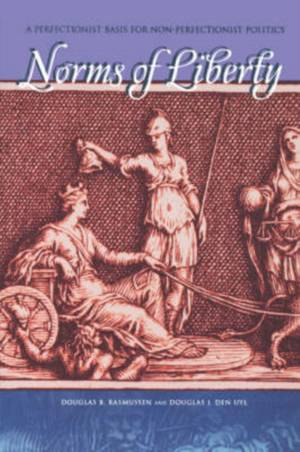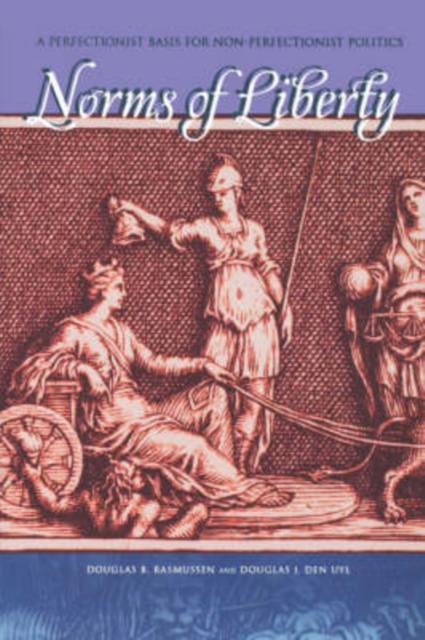
- Retrait gratuit dans votre magasin Club
- 7.000.000 titres dans notre catalogue
- Payer en toute sécurité
- Toujours un magasin près de chez vous
- Retrait gratuit dans votre magasin Club
- 7.000.000 titres dans notre catalogue
- Payer en toute sécurité
- Toujours un magasin près de chez vous
Norms of Liberty
A Perfectionist Basis for Non-Perfectionist Politics
Douglas B Rasmussen, Douglas J Den UylDescription
How can we establish a political/legal order that in principle does not require the human flourishing of any person or group to be given structured preference over that of any other? Addressing this question as the central problem of political philosophy, Norms of Liberty offers a new conceptual foundation for political liberalism that takes protecting liberty, understood in terms of individual negative rights, as the primary aim of the political/legal order.
Rasmussen and Den Uyl argue for construing individual rights as metanormative principles, directly tied to politics, that are used to establish the political/ legal conditions under which full moral conduct can take place. These they distinguish from normative principles, used to provide guidance for moral conduct within the ambit of normative ethics. This crucial distinction allows them to develop liberalism as a metanormative theory, not a guide for moral conduct. The moral universe need not be minimized or morality grounded in sentiment or contracts to support liberalism, they show. Rather, liberalism can be supported, and many of its internal tensions avoided, with an ethical framework of Aristotelian inspiration--one that understands human flourishing to be an objective, inclusive, individualized, agent-relative, social, and self-directed activity.
Spécifications
Parties prenantes
- Auteur(s) :
- Editeur:
Contenu
- Nombre de pages :
- 464
- Langue:
- Anglais
Caractéristiques
- EAN:
- 9780271027012
- Date de parution :
- 01-11-05
- Format:
- Livre broché
- Format numérique:
- Trade paperback (VS)
- Dimensions :
- 155 mm x 235 mm
- Poids :
- 517 g







